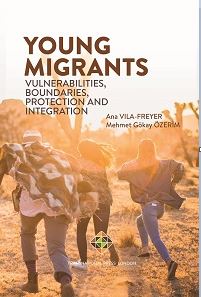‘I am proud as a Polish woman, but I would like to change my ‘nacionalidad’ – a case study of acculturation gap between Polish teenager living in Spain and her mother
‘I am proud as a Polish woman, but I would like to change my ‘nacionalidad’ – a case study of acculturation gap between Polish teenager living in Spain and her mother
Author(s): Paulina Szydłowska, Marisol Navas, Weronika Kałwak, Halina Grzymała Moszczyńska
Subject(s): Culture and social structure , Migration Studies, Politics and Identity, Asylum, Refugees, Migration as Policy-fields
Published by: Transnational Press London
Keywords: Proud; Polish Woman; Spain; Polish immigrants;
Summary/Abstract: The group of Polish immigrants in Spain is relatively small – around 52.000 Polish people are living in Spain, including about 9.000 children and adolescents (INE, 2018). According to The Centre for the Development of Polish Education Abroad (2019) there are 24 Polish Saturday schools, where Polish children learn the language and study Polish culture during their school-free time. Polish masses are provided by some churches, as well as there are Polish associations (e.g., Ambar, Aguila Blanca or Krakus) that make up the visibility of attempts to maintain their own culture by this minority group. These actions constitute a part of an effort to acculturate in Spain by Polish migrants. The aim of this paper is to identify and describe what kind of behaviours and experiences of Polish migrants may be interpreted as a part of their specific perceptions and preferences of acculturation. Furthermore, it is interesting how, within families of migrants, do the perceptions and preferences of acculturation of parents and children interact with each other in different life areas (peripheral and central)?
Book: Young Migration. Vulnerabilities, Boundaries, Protection and Integration
- Page Range: 157-172
- Page Count: 16
- Publication Year: 2020
- Language: English
- Content File-PDF

